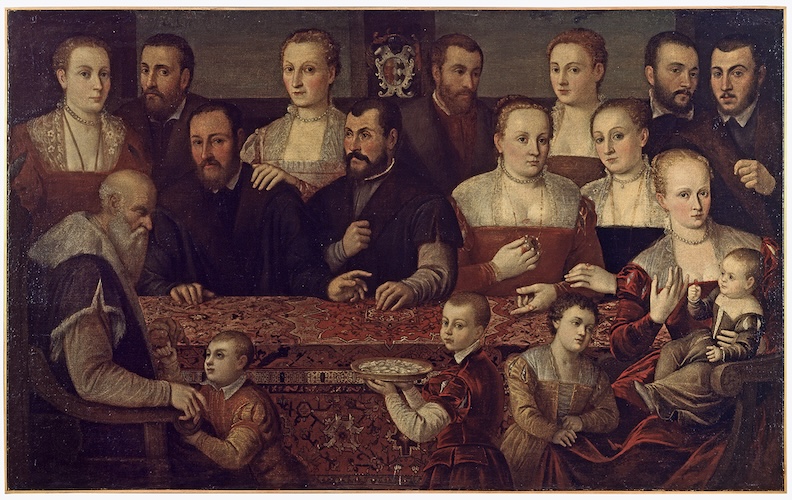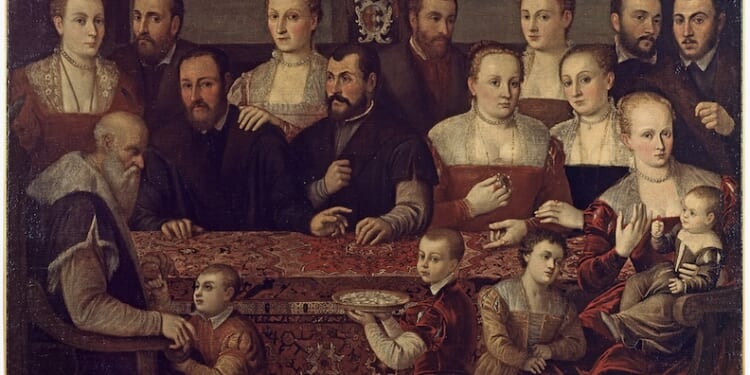Pope Leo XIV has joined the chorus of those lamenting the implosion of global fertility levels. Speaking after a visit with the President of Italy, the Pope urged action to implosion of fertility and the collapse of childbearing. Encouragingly, he specifically extolled gendered names for family members: “‘Father,’ ‘mother,’ ‘son,’ ‘daughter,’ ‘grandfather,’ ‘grandmother’. . .[t]hese are words that in Italian tradition naturally express and evoke sentiments of love, respect, and dedication – sometimes heroic – for the good of the family, community, and therefore for that of society as a whole.” They also express what is necessary to – and the result of – childbearing, something “parent one” and “parent two,” as several countries now designate mothers and fathers, do not.
Remedies for this state of affairs often focus on social reforms: parental leave, subsidies and tax breaks for families, childcare, and so on. There are indeed elements in our socio-economic structures that militate against families. It’s good that the pope noted them. But methinks his focus might be somewhere else.
As his predecessor, St. John Paul II (elected forty-seven years ago today), observed, culture lies upstream from both politics and economics. And our “blessed barrenness” is a cultural problem – both in the larger society and within the Catholic Church. As he said in Love and Responsibility:
Neither in the man nor in the woman can affirmation of the value of the person be divorced from awareness and willing acceptance that he may become a father and she may become a mother. . . .If the possibility of parenthood is deliberately excluded from marital relations, the character of the relationship between the partners automatically changes. The change is away from unification in love and in the direction of mutual, or rather, bilateral “enjoyment.
Human societies have always recognized that marriage and parenthood, though distinct, normally go together. In other words, in the ordinary run of things – absent disease, advanced age, or other impediments – spouses eventually become parents. This is not some esoteric Catholic doctrine but a natural law reality that human societies have long acknowledged. It’s why procreation was understood to be normally connected to marriage – at least until the novel oxymoron of “same-sex marriage” appeared.
This natural law fact, however, is elevated to a more significant level by Catholic theological teaching. Vatican II taught: “Children are really the supreme gift of marriage and contribute very substantially to the welfare of their parents.” (Gaudium et Spes, 50) The Council also affirmed that spousal cooperation with the Lord through parenthood is part of God’s work of Creation and Salvation. That’s why the nuptial blessing in the sacrament of matrimony includes an invocation that age-appropriate spouses may “be blessed with children, and prove themselves virtuous parents, who live to see their children’s children.”
Now: When’s the last time you heard a priest – or even a bishop – talk about those things?
Our secular society has broken the nexus between marriage and parenthood, treating the latter not so much as a “choice” as what former Paris Archbishop Michel Aupetit calls a “parental project” – an optional element of two people’s identity package, tailored to their desires and achieved by whatever means they deem fit.

The general social tolerance of out-of-wedlock childbearing, surrogacy, homosexual “adoption,” and similar arrangements attests to a broader cultural acceptance of the idea that children are not necessarily connected with marriage, much less that a child has a right to be conceived, born, and raised within a permanent marriage.
If you doubt that, consider whether asserting a child’s right to live in a marital environment would jar modern ears.
That more general cultural disconnection is now often mirrored within the Church. Catholics immersed in this dominant anti-culture – breathing the fumes, as it were, of its toxic social vision – need help not to assimilate its ideas by osmosis. Yet again: when, in the average parish, does one hear anything about fornication or surrogacy? The silence suggests either that the Church doesn’t think these issues are important or that they’re too commonplace to mention. Neither view is true.
So, while I welcome the Church as a partner in advancing social policies that foster parenthood and family life amid economic pressures militating against them, the gravamen of the Church’s work lies elsewhere.
The Church’s mission is the long-term formation of minds and hearts, beginning with the basic truths generations of Catholics once imbibed from their mothers and fathers (along with the “Our Father” and “Hail Mary”):
- Marriage is a natural, normal, and good part of life toward which most adults move and which should be encouraged, especially by families and the Church.
- Marriage precedes parenthood, but parenthood naturally flows from marriage.
- While intellectually distinct, they are not usually separable.
The normal person should not think of parenthood as some “optional extra” to marriage. The normal pattern should be that marriage leads to parenthood, not that parenthood must separately justify itself even after marriage.
Put bluntly: the average Catholic (who does not discern a vocation to the priesthood or religious life) should get married and then have a family.
It would be a great thing for ecclesiastical lobbyists to press parliaments and legislatures to enact social supports fostering marriage amid modern economic conditions. It would be a greater thing for pastors – especially the ones who emphasize the value of smelling like their sheep – to start talking a lot more frequently and more explicitly about marriage and parenthood.
There’s a reason why population decline now threatens many nations. If your culture is oriented towards barrenness, barrenness is what you will get. It’s time to take up a different tack, for the sake of our societies and our souls.











